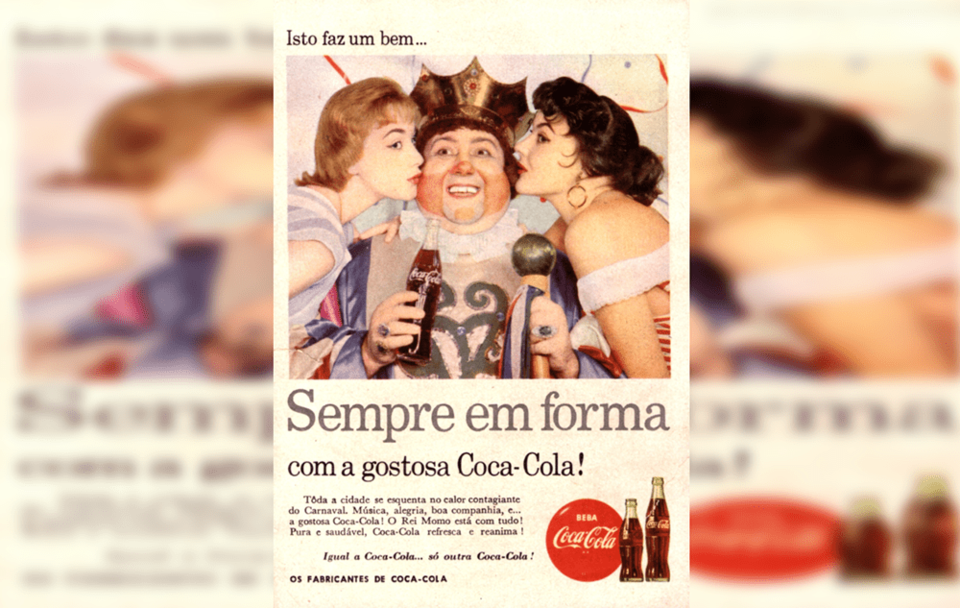BY COLIN BREZICKI Special to the VOICE
I'd like to buy the world a home
And furnish it with love
Grow apple trees and honey bees
And snow white turtle doves
(Chorus)
I'd like to teach the world to sing
In perfect harmony
I'd like to buy the world a Coke
And keep it company
That's the real thing
With a message to match the sugar content of its soft drink, Coca Cola was one of the first corporations to brand itself with feel-good politics. In its ‘70s commercial, the company torqued a song by the New Seekers embracing diversity and a love of peoplekind.
Where the New Seekers advocated inclusion of all races, creeds and colours, Coke simply urged them to drink its product. It was an early ad for globalization: the movement that changed the face of the earth by sticking corporate logos on every available surface.
Coke became the first corporate giant claiming to make the world a better place while “indiscriminately” fleecing its citizens, and asking them to believe that by drinking a can of liquid sugar they were contributing to world peace.
Other companies quickly caught on. In 1984, Apple announced the arrival of the Macintosh with a Super Bowl ad in which a single hammer blow destroys the tyranny of IBM, the Soviet Union, and Orwellian oppression. An athletic blond woman runs into a huge assembly hall full of male zombies and hurls her hammer into a giant screen, where Big Brother is spewing the workers’ collective manifesto, and destroys his evil empire.
Of course Wonderwoman only replaces it with another empire, but an enlightened one now with Apple core values.
Some time later, the company produced a laptop ad that showed an African villager outside his hut, emailing someone in another village, and celebrating in a solo dance his connection to the Information Superhighway.
The ad was soon pulled, for obvious reasons, and I suspect Apple’s marketing executives were signed-up for sensitivity training.
More recently, Nike and Gillette have entered the lists, having discovered two vacant billboards on which to slap their own brands.
One is racism, the other, toxic masculinity.
Nike was quick to capitalize on Colin Kaepernick’s refusal to kneel for the American anthem before NFL games as a gesture of solidarity with Black Lives Matter in its struggle against police discrimination and brutality. Kaepernick’s gesture became a movement, with players refusing to kneel, or just staying in their dressing rooms while the anthem played, until the NFL issued threats and the President tweeted insults. It became, like most things now, divisive rather than inclusive. Many fans were outraged at the perceived lack of respect for the flag; others praised the players’ courage in standing up for racial equality by taking a knee.
Nike filmed a punch-to-the gut commercial with Kaepernick’s voiceover, urging young black athletes to smash racial barriers the way Serena Williams can demolish a tennis racquet while scaling the heights of sporting superstardom. Reaction was again divided: Nike products oversold to a section of the demographic, while another chunk showed its displeasure by incinerating its Nike products and posting the ritual on social media.
Another burning issue of the day is the MeToo movement, which has seen various executives, producers, actors and politicians brought to their knees by victimized women. Whether it’s the fault of genes or testosterone, Pandora’s Box or Original Sin, toxic masculinity has been released into the atmosphere, and Gillette has decided to do something about it.
Their ad wags a finger at the congenitally ingrained male penchant for bullying and exploiting the vulnerable. It’s a soft-focus reminder to men and boys to play nice, keep their hands to themselves, and their mouths shut if they can’t say something kind. It’s a reasonable enough request. There’s absolutely nothing in the ad to make men foam at the mouth or flush their Gillettes down the crapper but that’s what many have done. After centuries of telling women to calm down and stop being hysterical, it’s men’s turn to lose their cool.
And all because of a commercial?
These are little more than ads to promote the sale of sports gear and shaving stuff.
That’s not to say corporations shouldn’t get in on at least a show of making our planet better, given their history of having made it a hell of a lot worse.
One thinks of Reynolds Tobacco, Dow Chemicals, Johnson and Johnson, Nestle, McDonalds, BP and others. The plastic in our oceans, pollution in the air, toxic waste in landfills, and the opioid addictions in our systems didn’t get there by themselves. So if companies now want to sell more of their products by virtue signaling why shouldn’t they? If it “raises awareness” of things one should absolutely be aware of, then what’s wrong with that?
Nothing at all, I’d suggest, so long as awareness is also raised to the fact that it’s all another kind of branding whose primary motive is profit. Let’s raise our awareness that Nike’s been running sweatshops for decades, and was as quick to reattach itself to a reformed Tiger Woods who started winning again, as it was to distance itself from him when he disgraced himself.
Gillette, for its part, has been flogging male dominance in the game of cherchez la femme since the beginning of time, so can one really credit its about face in the MeToo era as anything but opportunism? Especially when we find that its eight top executives, including President, CFO and Senior VPs are all male, and only one of the remaining nine board members is a woman.
Perhaps I’m being cynical and should at least give them the benefit of the doubt.
Oscar Wilde once defined a cynic as someone who knows the cost of everything and the value of nothing.
Time, and profit margins, both known for their insensitivity, will ultimately determine how long these feel-good campaigns last. ♦



